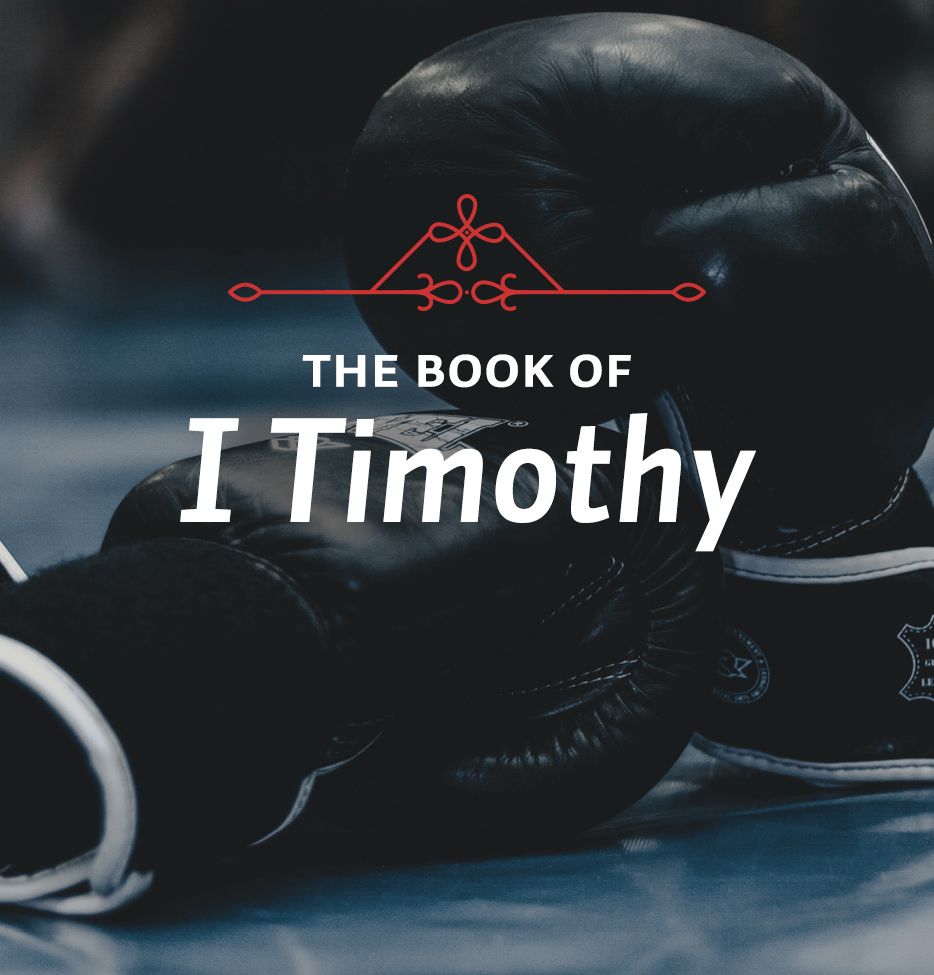Theme: The Example of Christ
In this week’s study, we look at the office of elder and deacon, and note the importance of Christian leadership, both in the church and in other callings we have received from God.
Scripture: 1 Timothy 3:1-13
You know, all these qualifications of leadership that he gives here—not only in 1 Timothy 3, but also in Titus 1—are more or less the same for the office of elder and the office of deacon. But there is one qualification that’s given for the office of elder that is not given for the office of deacon, and that has to do with teaching. You find it here in verse 2, where he uses the expression “able to teach.” Now that doesn’t necessarily mean that all the elders must be orators. Nor does it mean that all the elders must be preachers. It doesn’t even mean that all the elders must teach Sunday school classes. But it does mean that by the ordination of God, they must have an aptitude for sharing the truths of the Word of God with the people of God, and be able to do that in such a way that they and those in their charge might be guarded against the false doctrine that is prevalent in every age.
When he talks about their need to being able to teach, he shows that this is something that is not only done by knowledge, lest we think that somehow what we need are intellectuals as our elders. Rather, it is also to be done by holiness of life so that elders must not only know the truths of God, but live the truths of God, such that they demonstrate those truths for the people in the church.
I think when we read over a passage like this, in spite of the fact that Paul says that those who desire such an office desire a good work or a noble task, we’re inclined to say–if we have any humility and any sensitivity to the qualifications that are listed here—that we better not take that up because if that’s what’s required, who could possibly do that? How could one possibly be a leader in that way? We might say to ourselves, “Look at what Paul is saying about church leaders are to do and to be: “above reproach, the husband of but one wife, temperate, self-controlled, respectable, hospitable, able to teach, not given to much wine, not violent but gentle, not quarrelsome, and not a lover of money.” Then Paul adds that an elder is to “manage his own family well and see that his children obey him with proper respect” (vv. 2-4).
How could any of us do that? The answer is, of course, we cannot. But there’s one who not only can but did, namely, the Lord Jesus Christ. And we’re called as His people to be His followers and to emulate His attributes and, in doing that, become the kind of leaders of the people of God that God desires. Let me ask the question, “What is it that makes a good leader?” The world will say, “Oh, a leader is a person who knows his own mind. A leader is a person who marches to his own drum. A leader is a person who rises above the cries of the rabble and does what he himself in his own vision perceives.” But God says that this is not a leader according to the Bible. Instead, a good leader is one who is a good follower of Christ. Furthermore, lest we consider that ignoble, let’s remember that the Lord Jesus Christ, who is our leader, made that same statement of himself. He said, “For I have come down from heaven not to do my will but to do the will of Him who sent me” (John 6:38). That is the noble task that Jesus undertook for us. And may God give us many leaders in the church who desire their own noble task, to which Paul referred, above all things.
Study Questions:
Review the list of qualifications for elders and deacons in 1 Timothy 3. What ability is unique to elders?
How is Jesus to be our pattern for leadership?
Reflection: You may not serve as an elder or a deacon, but you can be Christian leaders in other areas, both in the church and outside it. What are some ways you carry out your God-given task?






